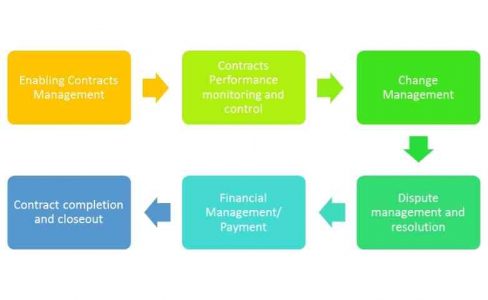
A utility worker is responsible for the installation, maintenance, and repair of utility services such as electricity, gas, water, and telecommunications. They may also be responsible for customer service and billing. A utility worker job description typically includes the following:
Definition and Example
- Installing, maintaining, and repairing utility services
- Responding to customer service calls
- Billing customers
- Reading meters
- Performing safety inspections
Importance, Benefits, and Historical Context
Utility workers play a vital role in our society. They ensure that we have access to the essential services we rely on every day. Without utility workers, our homes and businesses would not have electricity, gas, water, or telecommunications.
Transition to Main Article Topics
The main article topics will discuss the following:
- The different types of utility worker jobs
- The education and training requirements for utility workers
- The job outlook for utility workers
- The salary and benefits for utility workers
- The safety hazards associated with utility work
1. Installation
Installation is the process of putting in place or setting up a system or piece of equipment. For a utility worker, installation may involve tasks such as:
- Installing new electrical wiring or gas lines
- Setting up new water or sewer lines
- Installing new telecommunications lines or equipment
Installation is an important part of a utility worker’s job because it ensures that new utility services are set up safely and efficiently. Utility workers must have a good understanding of the codes and regulations that govern the installation of utility services. They must also be able to work safely with a variety of tools and equipment.
In addition to installing new utility services, utility workers may also be responsible for maintaining and repairing existing utility services. This may involve tasks such as:
- Repairing damaged electrical wiring or gas lines
- Fixing leaks in water or sewer lines
- Troubleshooting and repairing telecommunications lines or equipment
Maintaining and repairing utility services is important because it helps to ensure that these services are reliable and safe. Utility workers must be able to quickly and efficiently identify and fix problems with utility services. They must also be able to work safely in a variety of conditions, including inclement weather.
2. Maintenance
Maintenance is an essential part of a utility worker’s job description. Utility workers are responsible for maintaining the infrastructure that delivers essential services such as electricity, gas, water, and telecommunications to our homes and businesses. This infrastructure includes power lines, gas lines, water mains, and telecommunications cables. Without regular maintenance, this infrastructure can deteriorate and fail, leading to power outages, gas leaks, water contamination, and telecommunications disruptions.
Utility workers perform a variety of maintenance tasks, including:
- Inspecting infrastructure for damage or wear
- Repairing or replacing damaged infrastructure
- Testing infrastructure to ensure it is functioning properly
- Upgrading infrastructure to improve its efficiency and reliability
Maintenance is an important part of a utility worker’s job because it helps to ensure that utility services are reliable and safe. By regularly inspecting and maintaining infrastructure, utility workers can identify and fix problems before they cause major outages or disruptions. This helps to keep our homes and businesses running smoothly and safely.
3. Repair
In the context of a utility worker job description, repair refers to the skilled task of restoring faulty or damaged utility services, equipment, or infrastructure back to a functional and safe condition. It encompasses a wide range of activities aimed at maintaining the reliability and safety of essential utilities such as electricity, gas, water, and telecommunications.
- Emergency Repairs: Utility workers are often called upon to perform emergency repairs in response to unexpected events such as storms, accidents, or natural disasters. These repairs are crucial to minimizing service disruptions and ensuring public safety.
- Routine Repairs: In addition to emergency repairs, utility workers also conduct routine repairs to address wear and tear, aging infrastructure, or minor faults. These repairs help to prevent major breakdowns and extend the lifespan of utility assets.
- Specialized Repairs: Utility workers may specialize in repairing specific types of equipment or infrastructure, such as power lines, gas pipelines, or water treatment facilities. They possess in-depth knowledge and expertise to handle complex repairs and ensure the safe and efficient operation of these systems.
- Safety and Compliance: Repair work in the utility industry is subject to strict safety regulations and compliance standards. Utility workers are trained and certified to follow these guidelines, ensuring that repairs are performed safely and adhere to industry best practices.
Overall, repair is a vital aspect of a utility worker’s job description. By promptly and effectively addressing repairs, utility workers play a crucial role in maintaining the reliable delivery of essential services to homes, businesses, and communities.
4. Customer service
Customer service is an integral aspect of a utility worker job description. Utility workers interact with customers in a variety of settings, including in person, over the phone, and through written communication. They are responsible for providing excellent customer service by:
- Answering customer questions and inquiries – Utility workers must be able to answer customer questions about their utility services, including billing, rates, and outages. They must also be able to provide information about energy efficiency and conservation programs.
- Resolving customer complaints – Utility workers must be able to resolve customer complaints quickly and efficiently. This may involve investigating the complaint, explaining the utility’s policies and procedures, and offering solutions to the customer’s problem.
- Building relationships with customers – Utility workers must be able to build relationships with customers based on trust and respect. They must be able to communicate effectively with customers, listen to their concerns, and respond to their needs.
- Promoting the utility’s brand – Utility workers are often the face of the utility to the customer. They must be able to promote the utility’s brand in a positive and professional manner.
Providing excellent customer service is essential for utility workers. By doing so, they can help to build customer loyalty, improve the utility’s reputation, and increase customer satisfaction.
FAQs about Utility Worker Job Description
This section provides answers to frequently asked questions about utility worker job descriptions. These questions address common concerns and misconceptions about the role and responsibilities of utility workers.
Question 1: What are the main responsibilities of a utility worker?
Utility workers are responsible for the installation, maintenance, and repair of utility services such as electricity, gas, water, and telecommunications. They may also be responsible for customer service and billing.
Question 2: What are the educational requirements for becoming a utility worker?
Most utility workers have a high school diploma or equivalent. Some utility workers may also have post-secondary education in a related field, such as electrical engineering or plumbing.
Question 3: What are the physical demands of being a utility worker?
Utility workers must be able to lift heavy objects, climb ladders, and work in all types of weather conditions. They must also be able to work independently and as part of a team.
Question 4: What are the safety hazards associated with being a utility worker?
Utility workers face a number of safety hazards, including electrical shock, falls, and exposure to hazardous materials. They must be properly trained and equipped to work safely in these conditions.
Question 5: What is the job outlook for utility workers?
The job outlook for utility workers is expected to be good over the next few years. The demand for utility workers is expected to increase as the population grows and the need for reliable utility services increases.
Question 6: What are the benefits of being a utility worker?
Utility workers enjoy a number of benefits, including competitive salaries, good benefits, and the opportunity to work outdoors. They also have the opportunity to make a difference in their communities by providing essential services.
Summary
Utility workers play a vital role in our society by providing essential services such as electricity, gas, water, and telecommunications. They are responsible for the installation, maintenance, and repair of these services, and they must be properly trained and equipped to work safely in a variety of conditions. The job outlook for utility workers is expected to be good over the next few years, and they enjoy a number of benefits, including competitive salaries, good benefits, and the opportunity to work outdoors.
Transition to the next article section
The next section of this article will provide more information about the different types of utility worker jobs.
Utility Worker Job Description Tips
This section provides a set of tips to help you create a comprehensive and effective utility worker job description. These tips will help you to attract the best possible candidates for your open positions.
Tip 1: Use clear and concise language.
Your job description should be easy to read and understand. Avoid using jargon or technical terms that potential candidates may not be familiar with.
Tip 2: Be specific about the duties and responsibilities of the position.
Don’t just list general tasks. Instead, provide specific details about what the utility worker will be expected to do on a daily basis.
Tip 3: Include the qualifications and experience required for the position.
This will help you to attract candidates who are qualified for the job and who have the experience you need.
Tip 4: Highlight the benefits of working for your company.
This could include things like competitive salary and benefits, opportunities for advancement, and a positive work environment.
Tip 5: Use keywords throughout the job description.
This will help your job description to be found by potential candidates who are searching for jobs online.
By following these tips, you can create a utility worker job description that will help you to attract the best possible candidates for your open positions.
Creating a comprehensive and effective job description is an important part of the hiring process. By following the tips in this section, you can create a job description that will help you to attract the best possible candidates for your open positions.



